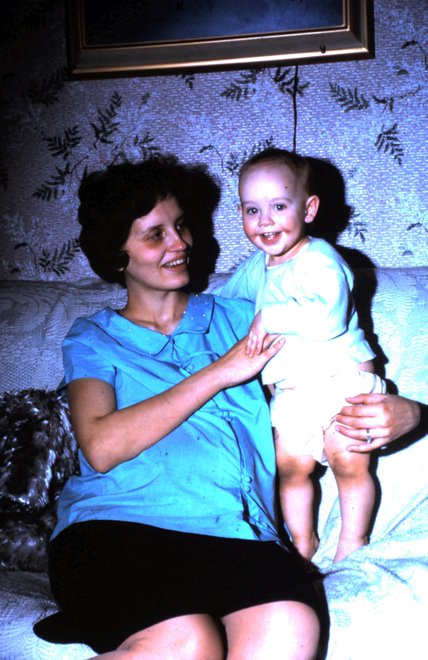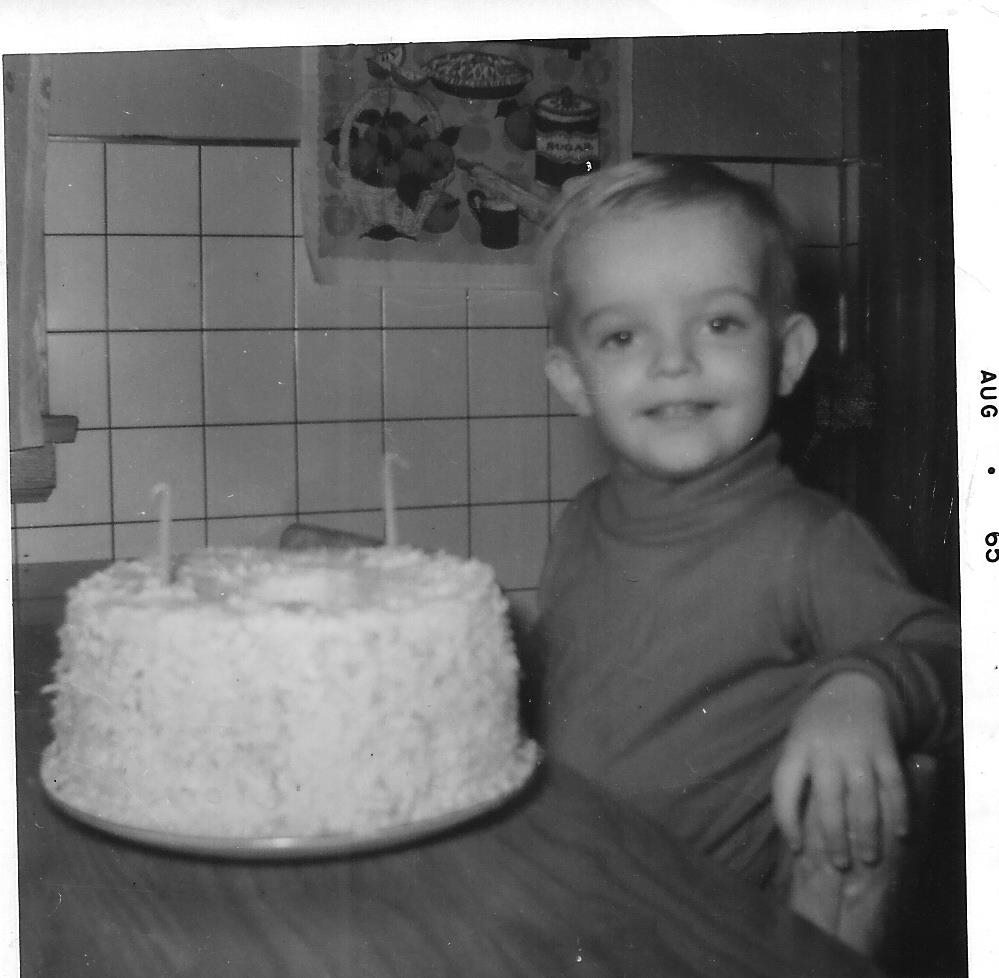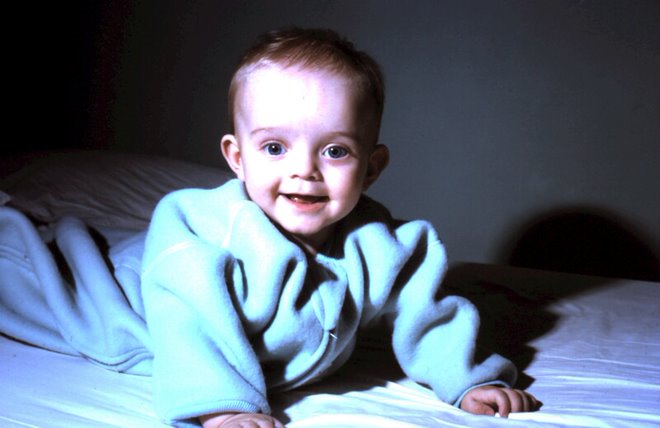4 Pre-memories
My mother was already three months pregnant with me during the Cuban Missile of October 1962. She tells me that week she stocked up on as much food as she could, hoping to stock enough to care for my older brother, who himself was only six months old.

The crisis had passed by the time I was born the following April, but by then she was too overwhelmed to care. She gave birth to me at the Neillsville Memorial Hospital during a record-setting heat wave. In the days before air conditioning, she would not have been very comfortable, but she was young, a 22-year-old farm girl toughened up by cold Wisconsin winters.
She brought me home to a small apartment in the nearby town of Granton, where my father had found work as a math teacher. Having just turned 23 himself, he was only a year out of the Eau Claire State Teachers College where they had met. Most of their classmates were already married and out in the world just like they were. In those days it just seemed like the normal thing to do upon turning 18: get married, have kids, settle down.
It’s hard to tell, after more than fifty years, which of my own memories are genuine and which are “memories of memories”, the foggy chimeras inherited from long-forgotten discussions about my earliest memories. Nevertheless there are a few incidents I can recall with enough clarity, and that fit the basic facts, well enough that I think they qualify.
My brother Gary was barely ten months older than me, and my sister Connie was only a year younger, so they were in all of my memories. I vaguely remember playing with them, on a hard wooden floor – maybe at Grandma’s house? All of my early memories are happy and content.
I remember living in a house in Eau Claire1, with back yard facing into a woods. It was Autumn, or perhaps Spring, because there were dead leaves on the ground, without much vegetation. There was a dog – I don’t think it was our dog – and he was running into the woods, so I followed. After a short distance, I noticed I was getting far from home so I stopped, hoping the dog would return, but he never did. That’s the memory: that’s it. The rest is an unsatisfying lack of closure, wondering what happened.
My parents tell me that we didn’t have a dog at the time, so it must have been a neighborhood pet. But what was it doing in our yard? Why did it leave such an impression on me? Who knows?
I vaguely remember the house itself: yellowish paint on the inside, a front door that opened directly into the main room, facing the tiny kitchen. A sofa to the left of the door blocked off the living room, where a child’s crib (my sister’s?) had been set up. Later my parents told me a story how, upon bringing my baby sister home from the hospital and setting her in that crib, my brother and I felt the urge to make her feel at home. We donated our favorite toys (or so the story goes), some heavy steel-made Tonka trucks, which we somehow tossed into the crib, barely missing the poor baby.
Another memory, set in the same house: I was talking with my mother, apparently about an upcoming birthday. “Your birthdays keep rolling along,” she said, and in my mind I pictured a birthday cake, spinning up the hill to our house. If that memory is accurate, based on the dates that my family was living in that house, it would have been just before my third birthday.

My left wrist bears a very light scar, nearly faded after half a century, which my mother said is the aftermath of an injury involving a toy drum set. I have no memory of this at all, but in my mind’s eye I picture a cheap, exposed metal ring protruding from a plastic covering, somehow digging into my wrist. It must have been more traumatic for my mother than for me, because if there were any long-term effects, I soon forgot them.
For years during my childhood, my mother called me by the nickname “mouse”, because she says I was so silent as I crawled through the house. If I was unusually quiet for a small boy, it may have simply reflected my overall sense of contentment. In photos, the baby me was always smiling, looking contentedly at the camera (no doubt, happy to oblige the requests of whoever was taking the picture).
We moved to Neillsville by the time I was four years old, most likely in the summer, in time for my father to take a job as a science teacher at the high school. Our first stop upon arrival was at our new church, the Neillsville Assembly of God, and there I made my first friend: Tommy Mohr, whose mother was the church secretary2. His older brother Bobby became my brother’s friend. Though I remember little else about the Novak boys from those earliest days, I imagine we saw them regularly – several times a week – before and after church services, no doubt and perhaps in between. They lived in the country, so it would have been impractical to visit him at his house – my memories of our rare visits there are when he was a bit older.3.
That’s it. Those are my only memories of life before elementary school. I would have begun with kindergarten, after I had turned five in April of 1968, so an entire year had passed in Neillsville before my memories kick in. That seems odd, now that I think about it – a move to a new city spurs no special memories in a child of that age – but perhaps I was so content, so trusting of my parents, that the surroundings of home and neighborhood just faded into the background. I was a happy baby, living a contented early childhood with a family who loved me, and maybe that’s all I need to remember.

Technically, it was the village of Elk Mound, a 15-minute drive from the college – now University of Wisconsin Eau Claire – where my parents met↩︎
Who, I believe is the author of this history of our church for the Wisconsin Historical Society↩︎
Tragically, Tommy’s father died in drowning accident a few years later, and Tommy moved away when his mother remarried a few years after that↩︎